John A. MacLellan
-Captain, MBE- (1921-1991)
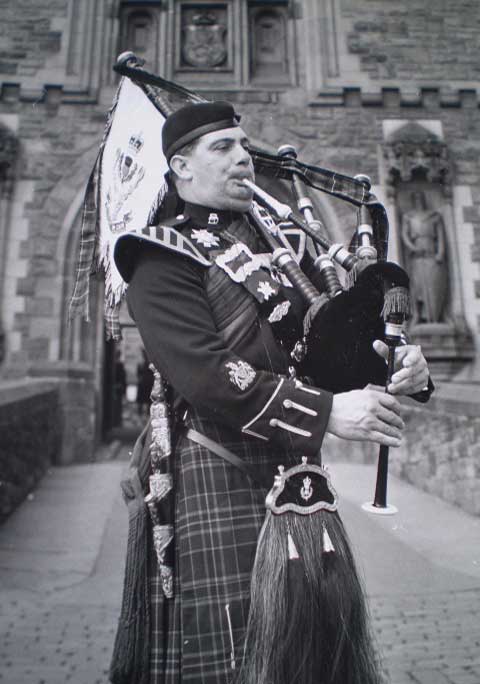 As a piper, his bright, clear tone and playing were riveting. As a competitor he was formidable. As a teacher he was forthright, perceptive and eloquent. And as a leader of men he was revered, feared and unquestioned. It would take a man of just that stature and piping strength to step into the shoes of the legendary Willie Ross as head of the Army School of Piping at Edinburgh Castle.
As a piper, his bright, clear tone and playing were riveting. As a competitor he was formidable. As a teacher he was forthright, perceptive and eloquent. And as a leader of men he was revered, feared and unquestioned. It would take a man of just that stature and piping strength to step into the shoes of the legendary Willie Ross as head of the Army School of Piping at Edinburgh Castle.
John A. MacLellan was born in Dunfermline, Fife, in July, 1921. He attended Fort Augustus Abbey School and joined the Queen’s Own Cameron Highlanders as a boy piper in 1936. His potential became apparent quickly, and in 1941 at age 19 he was named Pipe Major of the 9th Battalion, Queen’s Own Highlanders: the youngest man ever named pipe major in the British Army to that point.
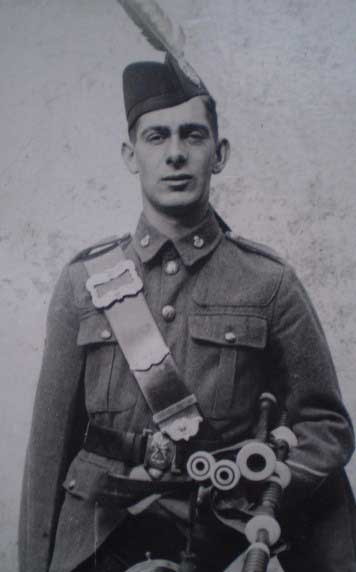
He would subsequently serve as pipe major with the 1st Seaforth Highlanders, the Lowland Brigade, and the 11th Seaforths. He was promoted to Warrant Officer 1 with his appointment in 1954 as RSM of the 1st and 11th Seaforths and served in Germany, Egypt, and Gibraltar.
In 1946 he attended the Pipe Major’s course under Willie Ross and graduated with a Distinguished Certificate. He would later be sent for piobaireachd instruction to John MacDonald of Inverness, then the Piobaireachd Society’s official instructor.
Prizes began to fall to him immediately after the war, when he won the marches at the Argyllshire Gathering in 1947 and the Former Winners’ MSR the following year. He won the Gold Medal at Oban in 1957 (“In Praise of Morag”) , the Gold Medal at Inverness in 1959 (“MacLeod of Raasay’s Salute”) , the Open Piobaireachd at Oban in 1948 (“The Vaunting”) , and 1958 (“The Lament for Colin Roy MacKenzie”), the Clasp at Inverness in 1958 (“The Daughter’s Lament”) and 1963 (“The Salute on the Birth of Rory Mor MacLeod”), as well as the Former Winners’ March, Strathspey and Reel at Oban (1948, 1958, 1963, 1964) and at Inverness (1948, 1958. 1963). The Scottish Piping Society of London also felt his competing prowess as he won Bratach Gorm there along with five wins in the Former Winners’ March, Strathspey and Reel. By the time he retired from competing in 1968 he had compiled one of the most successful competitive careers on record. His most notable competitive achievement was to win the four major former winners’ events at Oban and Inverness in 1958 – a feat not accomplished before or since.
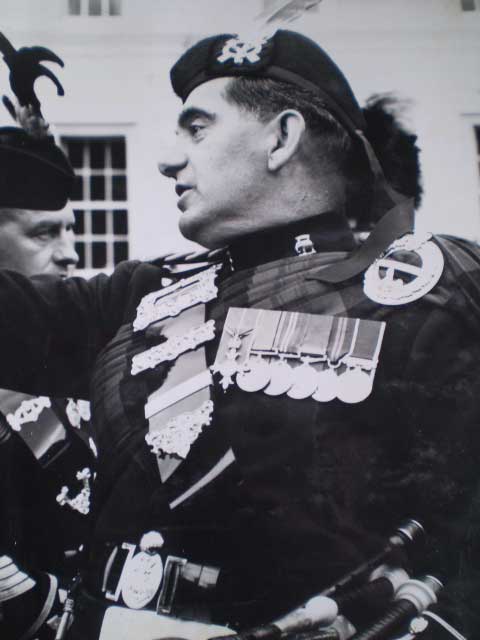
When he took over from Willie Ross in 1959, the Army Piping Class was being restructured as the Army School of Piping. Over the next 17 years he would run a tight ship at the Castle, with a long line of superb pipe major candidates studying under him. In 1963, with much of his best work still ahead of him, he was awarded the MBE for his contribution to the improvement of Army piping. Five years later he was appointed to a Commission in the Queen’s Own Highlanders, becoming the first Director of Army Bagpipe Music.
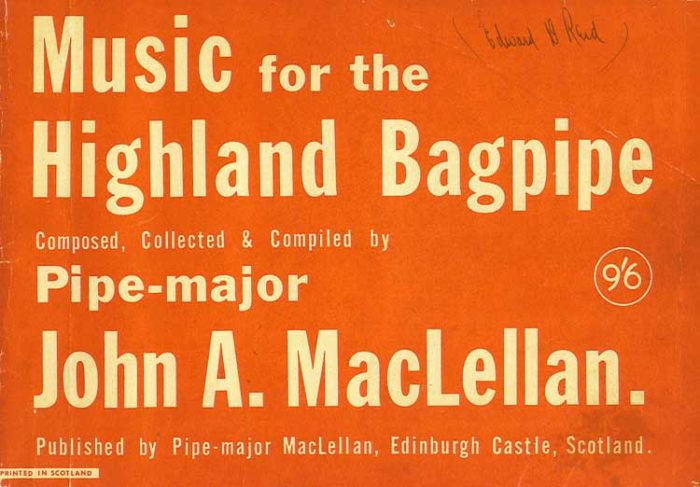
During the 1960s and 1970s he published six books of bagpipe music, many containing his own compositions and arrangements. He also turned to piobaireachd composition. At this he excelled, and he is thought by many to be the best composer of piobaireachd during the latter 20th century. His “Phantom Piper of Corrieyairack” – winner of the College of Piping/Saltire Award for piobaireachd composition in 1969 – has entered the repertoire as a staple, and “Farewell to the Queen’s Ferry” and “A Welcome to Patrick Struan,” “Salute to the Great Pipe” and “The Edinburgh Piobaireachd” are not far behind.
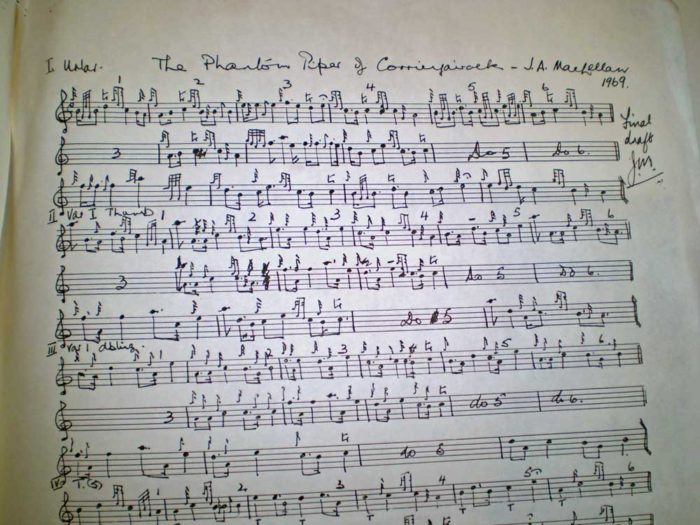
From 1978 to 1981 he and his wife Christine (known as ‘Bunty’) changed the face of piping periodicals by publishing the popular and influential “International Piper” magazine. It proved that a piping magazine could contain not only news but educational material as well, and its sudden cessation due to a potential lawsuit was a sad loss to the piping world.
John MacLellan also became a pioneer of piping summer schools, travelling to set up and teach schools in South Africa, Australia, the United States, Canada and New Zealand. Many North Americans, including this writer, benefitted from his generosity with tuition during the 1970s and ‘80s. His home on Dean Park Crescent in Edinburgh saw many piping visitors and he was a great supporter of overseas competitors attending the major events.
During this time he was also a prolific performer and contributor to BBC radio piping programs.
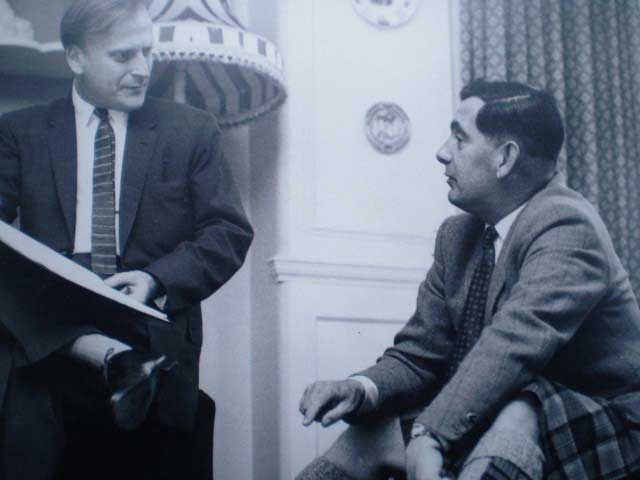
As early as 1962 he had proposed the idea of amalgamating the Army School, the College of Piping and the Piobaireachd Society under one umbrella to form the Institute of Piping. While the actual amalgamation did not happen, the Institute of Piping was born from this ambitious plan. The idea and syllabus lay dormant during his lifetime but has recently been resurrected and is becoming a world standard for classifying piping levels.
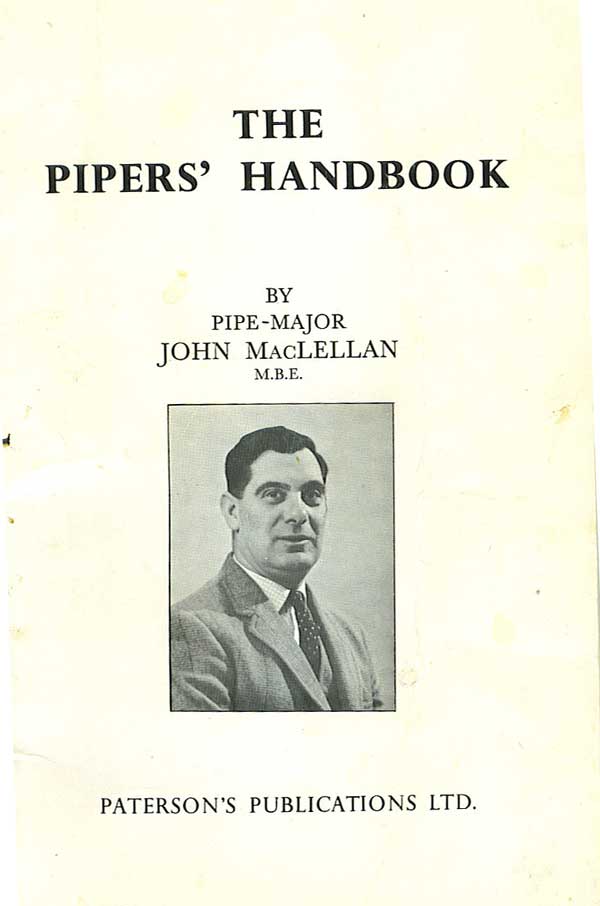
Shortly after retiring from competition, he was offered membership in the Piobaireachd Society, and this work would form a significant part of his piping contribution during the rest of his life. He soon became Honourary Secretary of the Music Committee, one of the most influential and important appointments in piping, responsible for all aspects of publication, set tunes and judging.
Those who knew “Captain John” during his retirement remember him for his knowledge, his generosity with it, and his beautifully toned instrument. They find it hard to believe this was the same man feared by his Army subordinates for so many years.
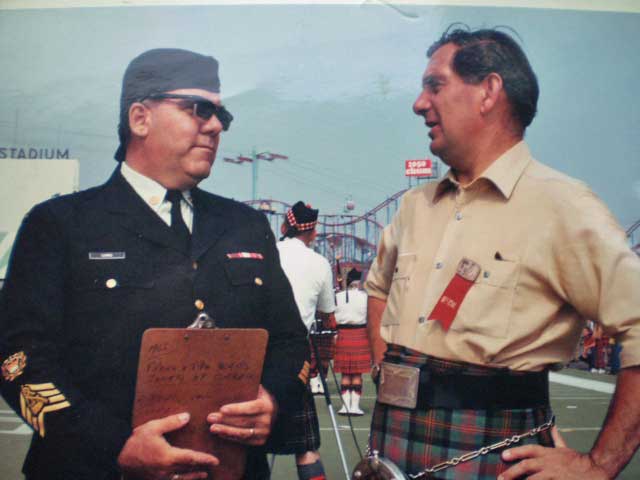
John MacLellan died at his home in April of 1991 at the age of 70. His son, Colin Roy MacLellan, continues his piping tradition, winning many of the same prizes John won. Colin still plays his father’s MacDougall bagpipe.
JM, May 2008
-with notes from Piping Times, June 1991, and notes and private correspondence with Colin MacLellan.

4 Comments
I am a member of the London Police Pipes and Drums and longtime pupil of Archie Cairns prior to his passing. Archie has this picture in his teaching room, he spoke very fondly of his time at the Army School of Piping under John MacLellan..
Yes, John and Archie were best friends. JM
Most Exquisite!
My name is Lorraine Cran and my Granny Annie Cran (nee MacDonald) was cousins with John. Interestingly my father, my brother and son all have very large lungs and I wonder is this a family thing that helped with the bagpipe playing.